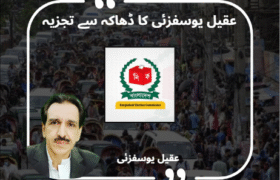It was August 2019 when tens of thousands of additional Indian troops were deployed in Jammu and Kashmir, a major Hindu pilgrimage was cancelled, schools and colleges were shut, tourists were ordered to leave, telephone and internet services were suspended and regional political leaders were placed under house arrest.
The international community was speculating about the revoking of Article 35A of the Indian constitution, which gave some special privileges to the people of Kashmir but the Modi’s fascist government then stunned everyone after it revoked nearly all of Article 370, which include 35A and has been the basis of Kashmir’s complex relationship with India for some 70 years.
After revoking the special status of Kashmir valley, modi then went on to cage approximately seven million Kashmiris living under complete communications blackout. Today Kashmir is one of the most or perhaps the most densely militarized zone in the world. More than a half-million soldiers have been deployed to counter what the army itself admits is now just a handful of “terrorists.” If there were any doubt earlier it should be abundantly clear by now that their real enemy is the Kashmiri people. What India has done in Kashmir over the last 30 years is unforgivable. An estimated 70,000 people, civilians, militants and security forces have been killed in the conflict. Following the revoking of special status of Jammu and Kashmir there are some reports in international media that the Hindu nationalists following the footsteps of Hindutva Ideology are taking over the properties of Kashmiri people without their will.
The reports in international media sparked a controversy when one of the richest persons in the world Mukesh Ambani announced that they will make several announcements related to investment in the newly formed Union Territories of Jammu and Kashmir and Ladakh in the upcoming days. Mukesh Ambani also said that the Reliance group will set up a special task force focused on making investments in Jammu and Kashmir.
However, reacting on the issue a senior leader in the opposition Congress Party described the decision as a “catastrophic step” and warned in parliament that it could have serious consequences.
According to the experts in India, many Indians might think that they have scored a victory, but in reality, they are wrong as it will lead to a catastrophic situation. Future generations will realise what a grave mistake this house is making today.
On the other hand, it is a test case for Pakistan and its foreign policy. Major countries have corporate interests in India and are currently ignoring the situation in Kashmir but the question is till when? The onus now lies on Pakistan to convince the western world to force India to normalise the situation in Kashmir. The Pakistani Prime Minister, Imran Khan, has already likened the Indian government to Nazis and has repeatedly warned that global inaction over Kashmir would be the same as appeasing Hitler.
Imran Khan on his twitter handle had posted, “Attempt is to change demography of Kashmir through ethnic cleansing. Question is: Will the world watch & appease as they did Hitler at Munich?”
Imran Khan added that the “ideology of Hindu supremacy, like the Nazi Aryan supremacy, will not stop” in Kashmir, but would lead to “the suppression of Muslims in India and eventually lead to targeting of Pakistan”.
India also arranged a visit of the 23 members European Parliament (MEPs), just two months after the Indian government removed the region’s special autonomous status. The trip sparked controversy when it was revealed that most of the MEPs belonged to far-right political parties, including France’s National Rally (formerly National Front) and Germany’s Alternative für Deutschland (AfD).
This visit was the latest example of the growing ties between the far-right in India and Europe, a connection that is rooted primarily in a shared hostility toward immigrants and Muslims. Today, with the populist radical right ascendant in India and in several European democracies, the far-right agenda has been increasingly normalized and made a part of mainstream political discourse.
Meanwhile, one can figure out some dimensions of multilateral diplomacy in the context of the prevailing crisis in Jammu and Kashmir. First, Pakistan’s strategy to neutralise Indian diplomatic drive launched by its Prime Minister Narendra Modi and Minister of External Affairs Subrahmanyam Jaishankar, to reiterate Indian position arguing revocation of Articles 370 and 35-A as its internal issue and to accuse Pakistan of exploiting the situation and motivating its people for Jihad against India. So far India has not been successful in its tactics to squarely hold Pakistan responsible for curfew, communications lock-down, use of pellet guns, extra-judicial killings and arrests of Kashmiri youths. Despite curbs, the Indian, Kashmiri and international media are reporting widespread human rights violations committed by the Indian security forces against Kashmiris.
Second, so far despite its diplomatic offensive since August 5 to engage major international actors in condemning India’s brutal suppression of Kashmiris’ drive for emancipation, Pakistan has not been able to call a special or emergency special session of the United Nations to discuss the explosive situation in the Indian-held Jammu and Kashmir because it lacks the backing of powerful international actors.
One of the option Pakistan can have for solving Kashmir conflict is to convince the UN Security Council and the General Assembly to deploy a sizeable international peace keeping force in Jammu and Kashmir while placing the disputed territory under the supervision of the International Trusteeship Council (ITC) for ten years.
Pakistan should also establish a Kashmir Desk in every embassy around the world in order to make the Kashmir case stronger and let the world know about Indian aggression in Kashmir.
It is important to mention that the reporting of international media in Indian occupied Kashmir has made the position of Pakistan stronger on diplomatic front but Pakistan needs to build on that in order to push countries for action against India.




